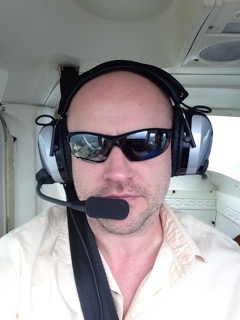Dr Andy Taylor

University Teacher in Air Transport Management, Loughborough University
Dr Andy Taylor commenced pilot training in 1996, but after completing his ATPLs and getting close to the CPL skills test, financial struggles forced him to return to his role as cabin crew in 1997. After five years as cabin crew and five more on the ground at Heathrow Airport, Andy gained a First-Class (Hons) Degree in Aviation Technology with Pilot Studies, as well as his PPL from the University of Leeds. Following a brief foray into retail management, Andy returned to Leeds in 2009 to undertake his PhD, looking at accidents involving General Aviation aircraft in the UK; he completed his Viva in July 2015. During his write-up, Andy secured employment as a Senior Lecturer in Aviation with Bucks New University in 2013, teaching and mentoring future pilots through their Air Transport with Commercial Pilot Training degree. In 2016, Andy moved on to the University of South Wales to manage their new flight training and aviation engineering programmes, but redundancy led him to teach Aviation and Airport Management at the University of Bedfordshire in January 2018. Recently, Andy’s research interests include fatigue, pilot mental health and pilot training. As an academic, Andy has presented at conferences for The Royal Aeronautical Society, The International Society of Air Safety Investigators, The European Association of Aviation Psychologists, and The Chartered Institute of Ergonomics and Human Factors. Additionally, he has given presentations at careers days for Virgin Atlantic, Pilot Careers Live and The Royal Aeronautical Society, and volunteers as a speaker on behalf of the Honourable Company of Air Pilots for the Livery Schools Link platform. Most recently, he presented at The Royal Aeronautical Society’s International Flight Crew Training conference in London (2019) and at EATS in Berlin in 2019. Andy is a University Teacher in Air Transport Management at Loughborough University (University of the Year 2019 and a top 5 university in the UK).
So Many Pilots, So Little to Do: How Higher Education Could Relieve Training and Employment Issues
Projections for a return to full capacity and growth have been put by some industry experts at between three to five years, leaving many pilots indefinitely grounded, and countless trainees caught mid-programme, with no current prospects for a job. One potential solution could be a Higher Education and Pilot Training Scheme (HEPTS). Precedent has been set for several components of flight training to be awarded academic credits towards a university degree. Most notably, the ATPLs have been shown to be equivalent to one year of university study. The benefits of studying a Commercial Pilot Training degree include the possibility for part of the UK’s student loan scheme to contribute towards flight training costs, and graduates who are both qualified to fly and knowledgeable in one of the main aviation study areas. As demand returns, grounded pilots can be offered the first job opportunities, whilst the next generation are held in the education system; they would both continue with commercial flight training, and gain an invaluable education. At a difficult time for universities, the potential concertina effect could see their numbers increase, allowing recruitment of some grounded pilots to teach, whilst partnered ATOs see a continuation, or even an increase in applications. In three to five years, the airlines would have a pool of trained and well-educated pilots waiting, at a time when capacity and growth would have returned to previous levels. Airline sponsorship in the form of a guaranteed assessment, subject to minimum targets being achieved, would additionally incentivise improved academic and training performance, resulting in higher quality graduates. This presentation will detail how such a scheme would work and the benefits to both trainees and industry.
